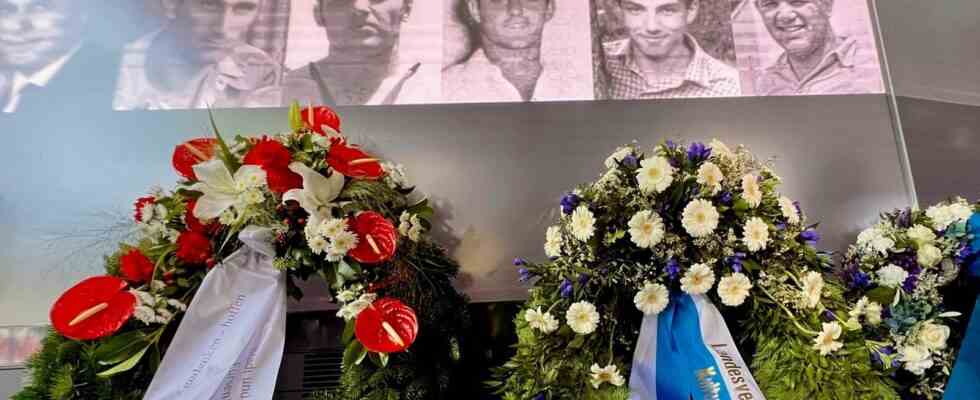Piazolo: “One of the blackest days in Germany”
It was with the words of a reporter in 1972 that the Bavarian Minister of Education, Michael Piazolo (Free Voters), began his speech: “They are all gone.” There could not be a more powerful summary of the tragedy, said Piazolo. September 5, 1972 was “one of the blackest days in Germany,” and then Piazolo presented all twelve names of the victims of the assassination that could be seen in black-and-white photographs behind him.
The memory of the Olympic assassination ensures “that we protect our democratic values better than we did 50 years ago,” Piazolo continued. But the fact that you have learned something new is no excuse for the omissions of that time.
With education against hate and intolerance
Addressing the relatives, Piazolo said: “We mourn with them, for twelve lives stolen, for twelve families destroyed.” The desire that they will never be forgotten found expression in the erection of this memorial, among other things. But hatred, intolerance and anti-Semitism can only be combated with education. This is a daily challenge. Bavaria bundles this challenge precisely in the development of an overarching concept against anti-Semitism.
Tropper: “Coming full circle”
In his speech, Piazolo’s colleague Yehiel Tropper, the Israeli Minister of Education, recalled how the competitions continued “as if nothing had happened”. Tropper: “Sporting victories were celebrated while we buried our loved ones.” The assassination was the darkest spot of the Olympic Games and had been suppressed for years. Now the circle closes, through payments to the bereaved. The insistence of the relatives was worth it, says Tropper.
Before the event, many of the relatives also spoke of a closing circle. They are happy that an agreement could finally be reached and that they could now conclude better.

